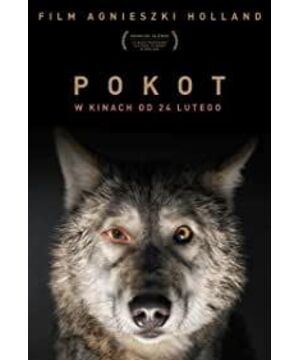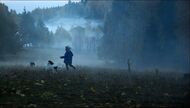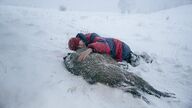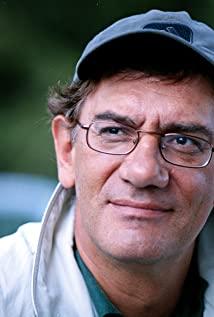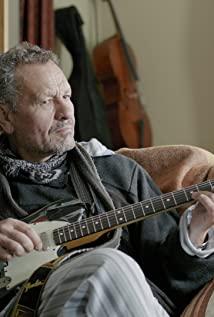The Originator of the Bible Records 1:24
Human beings are the administrators appointed by God to govern the earth and all the living creatures on it, but after so many years, what have we done? Kill weak creatures! Poach rare animals! Sell rare birds! Many people regard animals as the private property of human beings and dispose of them at will, which is really frightening.
The opening of today's film review gives you a sense of "righteous indignation", yes! Because the next movie that I personally recommend is an animal protection theme work with this strong atmosphere.
"Pokot" (English translation "spoor", Chinese translation "soil of bone") tells the story of an old female English teacher who fights against hunters and protects forest animals. (This is an overview, and it will stop at the end of the list.)
As a participating (award-winning) film at the 67th Berlin International Film Festival, there are indeed many highlights of this Polish drama, which are worth thinking about by the audience.
I. Subject matter attention
Director Agnieszka Holland established "animal protection" as the main theme of the film, which resonated with many audiences, and was even recognized by the film festival judges. The mainstream media's "wind of change" quietly emerged.
With the deepening of social civilization, more and more people realize the importance of "animal protection". The relationship between humans and other species is coexistence? Or dominate? It has already begun to emerge. Symbiosis is the only way out.
II. The expressive power of the actors In
an excellent work (in terms of content alone), the script comes first, and the actors second. It is no exaggeration to say that a good actor is enough to influence the direction of a film. But how to define "good" and "bad"? I have some immature opinions that I would like to share with you.
First, naturalness. Is the performance "natural"? Is there a "deliberate feeling"?
Second, the emotions are in place. Fully grasp the emotional trend of the characters in the play, be targeted and relaxed.
Finally, body language. In addition to words, body movements are also a key point. In many cases, a subtle action and a very small facial expression can vividly act out the characters in the play.
Back to the film, let's just talk about one - the protagonist of the film, Janina (played by Agnieszka Mandat-Grabka). Simple, old, and fanatical are my basic impressions of this character.
In terms of details, the random burst of Janina's "hysterical" state made the audience a little uncomfortable (the sense of deliberateness was slightly more obvious).
On the whole, Agnieszka's interpretation of the role is of a mid-to-high level. Rich facial expressions and delicate body expressions effectively make up for the monotonous presentation of language and dialogue due to overly emotional interpretations.
III. Controversial plot
from hunting groups to hunt jungle animals at will --> Janina mobilized her students to call for animal protection (ineffective) --> Janina asked the local police station to come forward to stop the killing (failed) --> Janina personally went into battle and violently
The series of plot development and plot setting of Suppressing Violence are full of controversy and enrich the sense of opposition. One of the most incomprehensible (unbelievable) is "the extreme behavior that Janina finally took - by killing hunting personnel, to achieve the purpose of protecting animals". From a frail old woman to an ultimate hunter, Janina's "Ultimate Evolution" left audiences stunned.
However, after looking back at the whole story and going through it again in my mind, I feel that this processing and setting is not difficult to understand. what for? In short, the director tries to highlight the purpose, necessity and urgency of "animal protection" through the extreme behavior and extreme actions of the characters in the play.
IV. Exquisite pictures The
scenery is beautiful, the composition is rigorous, and every frame of the picture is intoxicating. This is the unanimous praise of many audiences for the film picture. good! But the most memorable thing for me is the "contrast of the colors of the picture".
How to understand? To put it simply, two tones appear alternately, one is "dark" and the other is "sunny".
When humans hunt animals; when children, women are abused (flashback memory fragment); when the heroine starts to hunt hunters. The picture that appears has an obvious "sense of depression", a typical dark tone, which is beyond doubt.
On the contrary, when the heroine is with the students; when the little animals play carefree in the fields on the hill; when the heroine is with people on the same front. The picture that appears is full of color, bright light, and strong warm tones, which are beyond words.
The director uses the alternation of the film's tones to show the psychological changes of the protagonist of the story at a glance, which is so ingenious.
V. Various characters (allusion to politics, human rights and other topics)
Janina: An elderly English teacher, who loves nature, cares for students, and a fanatical "animal protectionist"
Dyzio: technical nerd , Suffering from epilepsy, and the female partner Dobra became a well-deserved appearance in the play.
Dobra: the representative of disadvantaged women, subject to her boyfriend (that is, the Wnetrzak who bought and threatened the police chief)
Other roles also include: Confused by money , a policeman who strayed from his conscience; a priest who overemphasized "natural rights", "conquer the earth"; hunted animals, opened casinos, inhumane Wnetrzak, etc.
VI.
Before the end of the sublimation film at the end, a rare beautiful and harmonious picture appeared on the screen - Janina found two dead dogs, the heroine and two elderly men and a technical house, a little boy (Dobra brother) and the beautiful girl Dobra sat around the wooden table and enjoyed the gifts of nature. Beauty is so unreal! Is this a fantasy? Or reality? I make two assumptions.
1. Fantasy. Even with Dyzio's assistance, these people were eventually captured by the police, and the hunters continued to take up arms and kill the small animals, and everything returned to "normal". The final picture is either a dream or a paradise.
2. Reality. The Animal Protection Union finally defeated the hunting organization and escaped the pursuit of the police. Several people lived leisurely in the mountains and forests full of flowers and animals. (As for how to explain the two dogs reasonably? It can only be said that they look alike, not the previous two)
Two hypotheses, individuals prefer the former. There are three reasons.
First of all, the three views are straightened - the murderer must pay for his life.
Secondly, this work is a drama film, not a fantasy film, so the plot must be rationalized.
Finally, sublime the theme. Frankly speaking of the gap between ideal (protecting and treating animals kindly) and reality (hunting animals at will), he warned everyone that "there is still a long way to go".
Write at the end. Recently, I seldom get involved in film reviews of European drama films, not because of lack of material, but because of the many hidden meanings of such works. Therefore, in line with the attitude of "knowing what you know, you don't know what you don't know, it is also knowing", and I have slowed down the launch of relevant film reviews for this type of work, and hereby inform you.
Director★★★★★ (thoughtful, connotative, and has a great ability to control the script)
Actor★★★★☆ (The heroine's interpretation is slightly overdone, it may also be the script setting, the overall level is above-average)
Plot★ ★★☆☆ (The foreshadowing is a bit long, there are many metaphors, and some are scattered. You need to watch the film carefully and think about it carefully)
Visual effects★★★★★(Beautiful and full of meaning)
Sound effects★★★★★(European music has a strong atmosphere, Delicate, tacit, and infinitely close to the plot trend)
Recommended crowd: people with connotation
more movie reviews + recommended first published in "The Journey of Floyd and Helen", thank you
View more about Spoor reviews


